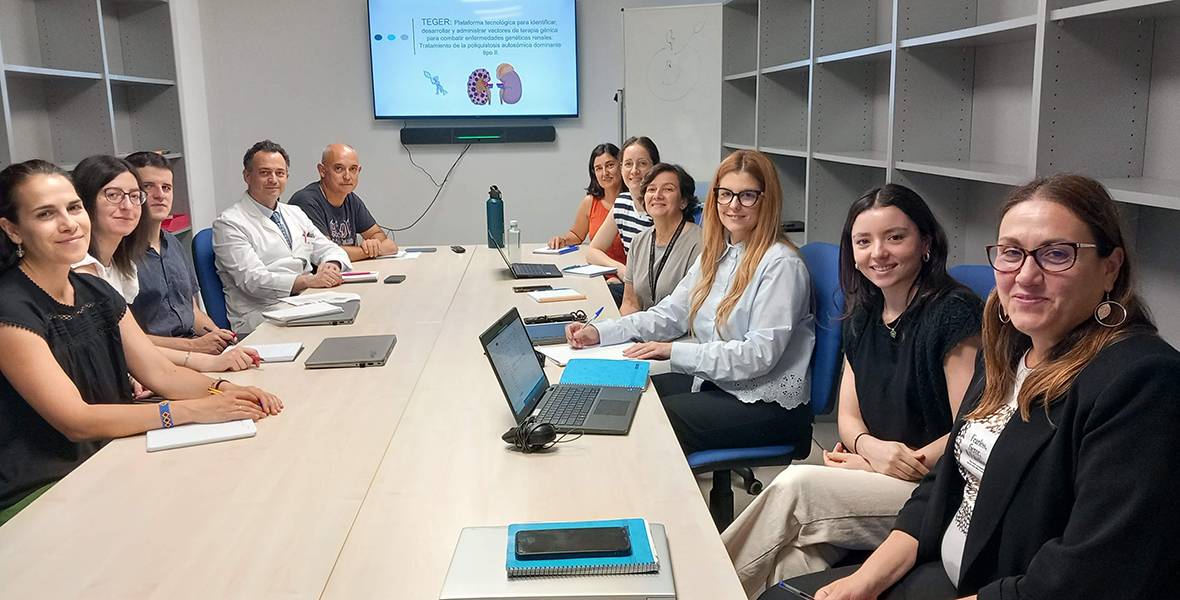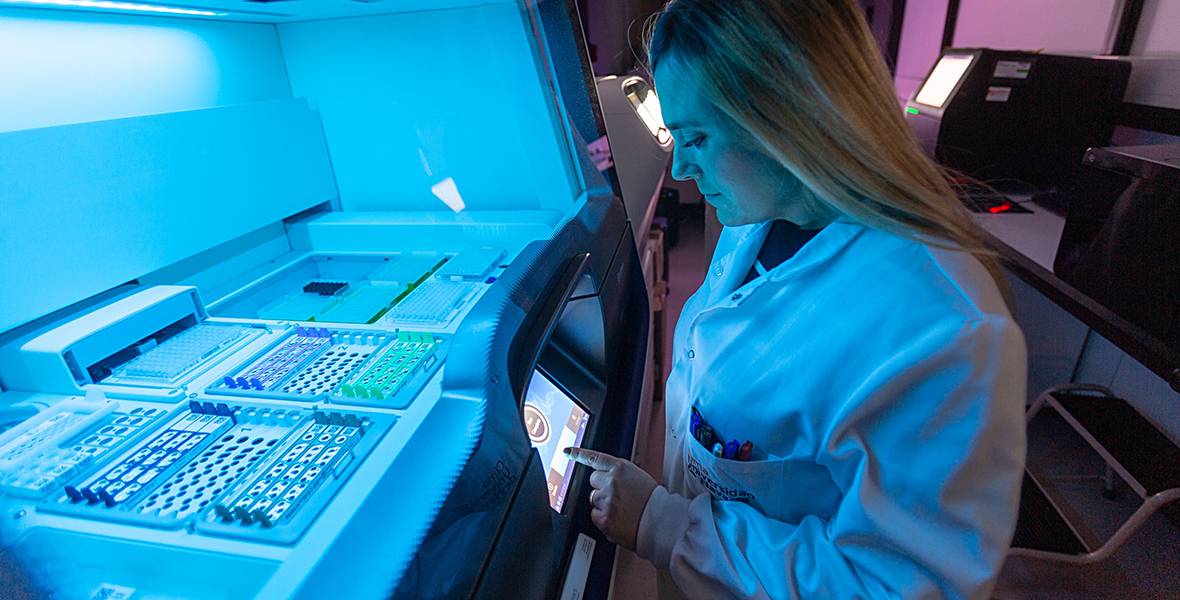TEGER Project
Development of therapeutic strategies to treat patients with renal disease of genetic origin.
Chronic kidney disease (CKD) affects about 8% of the EU population causing the death of 175,000 people annually. Seventy percent of pediatric CKD cases and 10% of adult end-stage CKD are due to defects in a single gene.
Renal transplantation is currently the only curative treatment for CKD, underscoring the undeniable need to develop new therapeutic strategies. Furthermore, current treatment of CKD focuses on symptom control, treatment of associated complications and attempts to delay disease progression. Gene therapy represents a clear clinical alternative of great appeal for patients with kidney disease of genetic origin. Among these diseases, the most frequent is polycystic kidney disease with an incidence of 1 in 400-1000 births.
In TEGER we will generate AAV libraries that will be locally administered in animal models. After which, using massive sequencing techniques in combination with bioinformatics tools, we will identify AAV variants with high transferability of the genetic material to kidney cells. In parallel, a medical device will be developed to allow safe and efficient administration of gene therapy vectors, optimizing administration conditions in large animal models, which will accelerate the clinical development of renal gene therapy.
A very relevant objective of TEGER is the identification of the mutations causing polycystic kidney disease in the population of Navarra, which will allow the identification of patients to be included in a future gene therapy clinical trial in Navarra.
Therefore, TEGER has been created to provide an innovative solution to renal diseases of hereditary origin through the development of advanced therapies by personalizing the transfer of therapeutic genes.
| Funder: |

Need more information?
If you are interested in learning more about our research, please contact us.
Coordinator and partners
TEGER project participants
Project coordinator:
- FIMA through Cima Universidad de Navarra
Project partners:
- VIVET
- VIDORRETA
- ADItech
- Clínica Universidad de Navarra
- FMS-HUN
 TEGER Project participants
TEGER Project participants
|
|
|
|
|
|
|
|
|
|
- Ángel Alonso Sánchez
- Virginia García Solaesa
- Carolina Eugenia Purroy Irurzun

